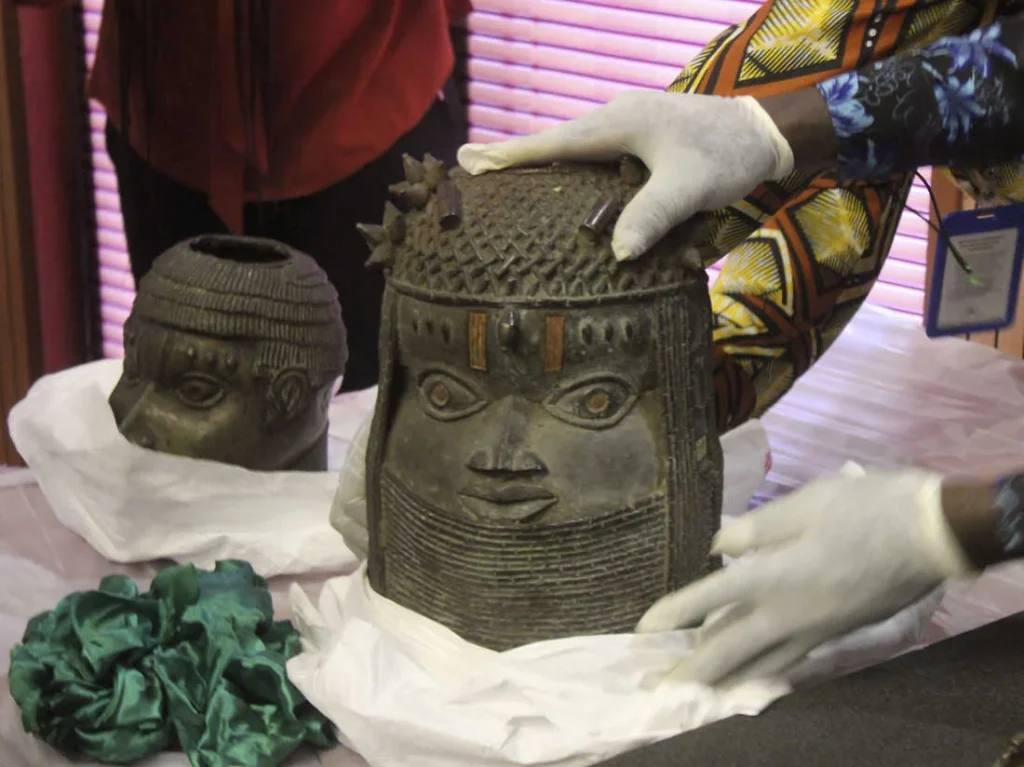On Thursday, June 26, 2025, the Netherlands returned 119 looted artifacts, known as the Benin Bronzes, to Nigeria.
This marks the largest single repatriation of colonial-era treasures to the West African nation.
The artifacts, including human and animal figures, plaques, royal regalia, and a bell, were stolen by British soldiers in 1897 during the sacking of the Benin Kingdom in present-day southern Nigeria.
Handed over in a ceremony in Edo State, the repatriation is a significant step in addressing historical injustices.
The Benin Bronzes, mostly housed in Leiden’s Wereld Museum, were looted during a British punitive expedition that exiled Oba Ovonramwen Nogbaisi for six months.
Oba Ewuare II, the current monarch and custodian of Benin culture, hailed the return as a “divine intervention” and a testament to “prayer and determination.”
Nigeria’s National Commission for Museums and Monuments (NCMM), led by Director Olugbile Holloway, spearheaded the request for their return, part of a broader 2022 campaign to recover hundreds of looted objects from global museums.
“This is a historic moment,” Holloway said, noting that the 119 artifacts surpass previous repatriations, including 72 objects from a London museum and 31 from Rhode Island in 2022.
Marieke Van Bommel, director of the Wereld Museum, affirmed the Dutch government’s commitment to returning artifacts that “do not belong to the Netherlands,” aligning with global efforts to address colonial legacies.
A Global Movement
The repatriation reflects a growing movement among European and North American museums to resolve ownership disputes over looted artifacts.
Since Nigeria’s 2022 formal request, institutions in Germany, the UK, and the U.S. have returned Benin Bronzes, acknowledging their cultural significance to the Edo people.
The artifacts, crafted between the 16th and 19th centuries, are masterpieces of bronze and ivory, symbolizing the Benin Kingdom’s artistic and historical legacy.
The return comes amid Nigeria’s broader challenges, such as the UAE’s visa restrictions requiring a $60,000 bank balance, which limit Nigerian mobility and cultural exchange.
Similarly, Ghana’s $2.8 billion debt restructuring deal highlights regional economic pressures, underscoring the need for cultural and economic empowerment.
Nigeria’s efforts to reclaim its heritage align with its $1 trillion economy goal by 2030, as seen in the recent Nigeria-Brazil agriculture deal, signaling a push for self-determination.
Challenges and Future Steps
Despite progress, thousands of Benin Bronzes remain in Western museums, with the British Museum holding over 900.
Nigeria’s NCMM is intensifying efforts to recover these, planning a Benin Royal Museum to house returned artifacts.
However, logistical and diplomatic hurdles, like those seen in Nigeria’s visa struggles, complicate repatriation.
The process requires sustained international cooperation and funding, with Germany pledging €2 million for Nigeria’s museum infrastructure in 2024.
A Cultural Renaissance?
As Nigeria reclaims its heritage, the return of the Benin Bronzes sparks hope for cultural restoration.
Can these efforts rebuild national pride and global respect, or will remaining looted artifacts stay out of reach?























